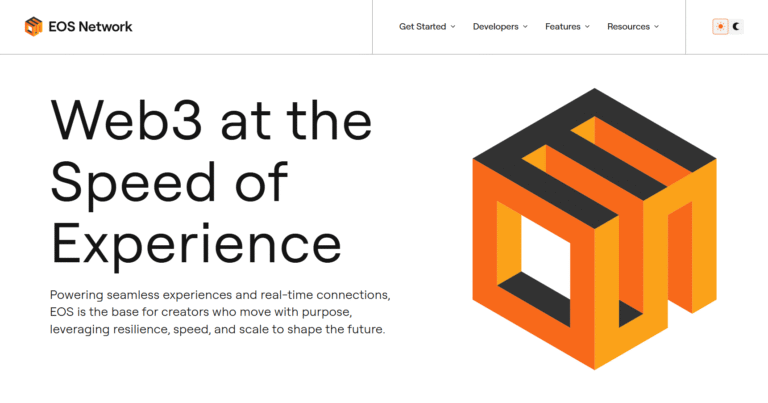Table of Contents
Introduction to EOS
This is your go-to EOS review where we confront circulating doubts—many of which center on claims that EOS is a scam. EOS is a blockchain protocol launched in 2018 by Block.one, aimed at enabling fast, feeless transactions and powerful decentralized applications. But with its complex governance model and a history of controversy, many question: is EOS a fraud or a legitimate crypto platform? This EOS review uncovers all the warning signs you need to know.
Our guide is tailored for two readers: those who suspect they’ve been misled by EOS-related schemes and want verified clarity, and those wary about staking or transacting with it. We validate your skepticism while aiming to ease your frustration with clear, objective insight.
EOS: Regulation & Legal Status
EOS·IO is an open-source blockchain, not a regulated financial instrument. Launched by Block.one—registered in the Cayman Islands—it remains decentralized and not subject to direct oversight by authorities like the SEC, FCA, or ASIC. This status does not automatically imply fraud, but it does mean there is no formal regulatory safety net.
Blockchain ecosystems without clear regulation are fertile ground for scams, mimicking trust through subtle misdirection. Many nefarious actors prey on this space with cloned accounts and phishing tactics that appear official. To safeguard yourself, learn how to spot a scam broker before it’s too late. The absence of oversight certainly stirs legitimate doubt—raising the question: is EOS a scam?
Trading Conditions & Platform Analysis of EOS
EOS isn’t traded on traditional platforms like MT4/MT5—it’s listed on cryptocurrency exchanges. Features center around staking, DApp usage, and transferring tokens. There’s no regulated trading environment or standardized transparency around liquidity or transaction integrity.
Watch out for aggressive yield schemes or token swaps promising high returns—these oftentimes involve smart contracts with little oversight, which have been abused before. Just because a project sits in your wallet doesn’t make it secure. Learn what matters in platform safety through what to check before signing up with a trading platform. These vulnerabilities make it harder to dismiss the idea that EOS-related projects might be fraudulent.
Reputation & User Reviews About EOS
EOS’s technical performance—speed, scalability, and smart contract support—is often praised in reviews like those on Cryptogeek, which gave it a “Reputation” score of around 4/5 :contentReference[oaicite:0]{index=0}. Nevertheless, many user forums tell a different story.
Scam reports are frequent on Reddit: victims recount schemes where small “test transfers” returned tokens, but larger deposits vanished entirely :contentReference[oaicite:1]{index=1}. Scam methods include manipulated smart contracts, impersonation of wallet or exchange support, and targeted “address poisoning” where users unknowingly copy a counterfeit address that steals their EOS :contentReference[oaicite:2]{index=2}.
These unsettling cases suggest that while EOS itself isn’t inherently fraudulent, the ecosystem around it can be perilous for the unwary.
How to Test Whether EOS Is a Scam
Wondering if EOS is a scam? Here are key actions to protect yourself:
- Regulatory Check: EOS is not regulated—approach with informed caution.
- Examine Red Flags: Be suspicious of unsolicited “guaranteed profit” schemes or smart contract offers.
- Read Genuine Complaints: Scour forums and communities for scam patterns like refund tricks or impersonated support pulls.
- Fake Wallet Alert: Always double-check addresses; beware of phishing attacks, like those replicating exchange branding :contentReference[oaicite:3]{index=3}.
- Use Trusted Tools: Validate contract safety using security-check platforms, audit reports, or ScamDoc-style services.
These steps won’t guarantee safety, but they significantly reduce exposure to scams within the EOS ecosystem.
Final Verdict & Alternatives
Is EOS a scam? No—technically, it’s not. It’s a versatile blockchain with real potential, backed by a long history and tools for developers. Yet the lack of regulation, combined with frequent scams targeting EOS users, demands extreme caution.
If you’re exploring blockchain platforms, consider options with stronger oversight or better-developed security practices, such as Ethereum (robust audits), Solana, or regulated tokenized platforms. Always validate, verify, and test before committing funds.



